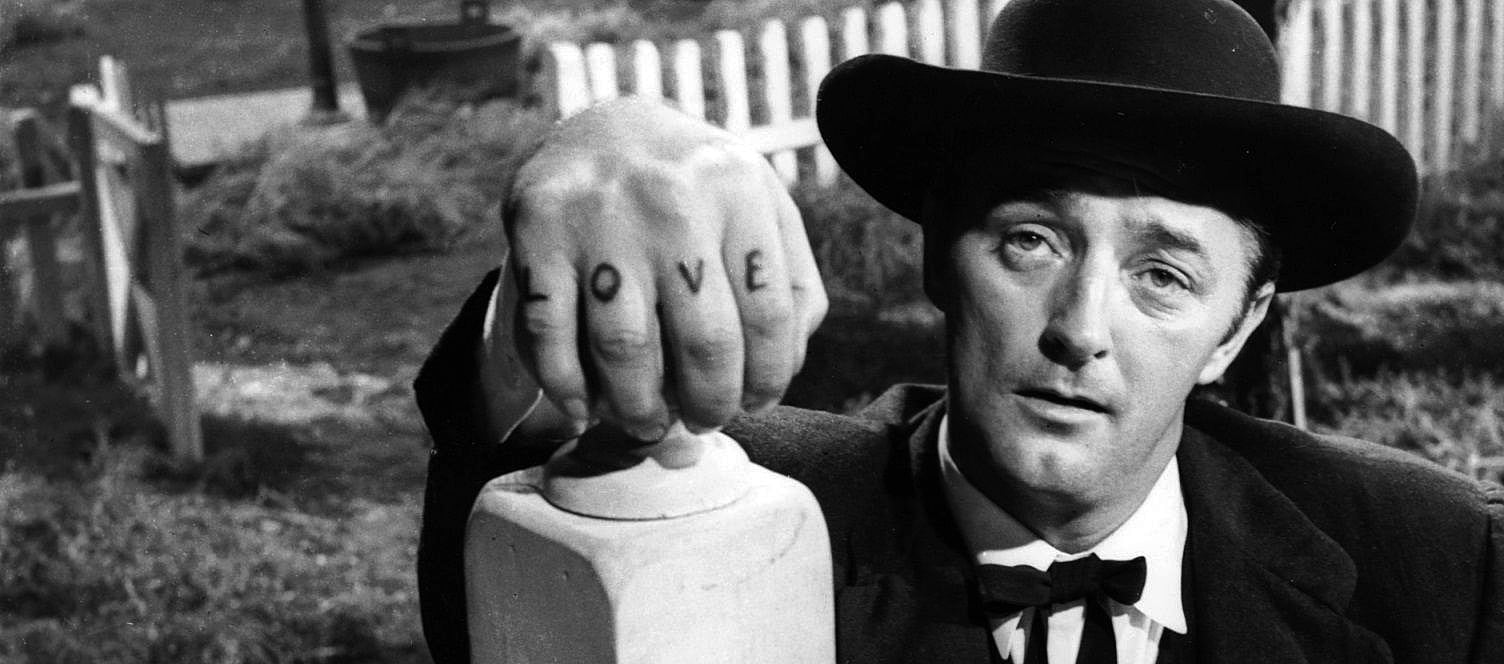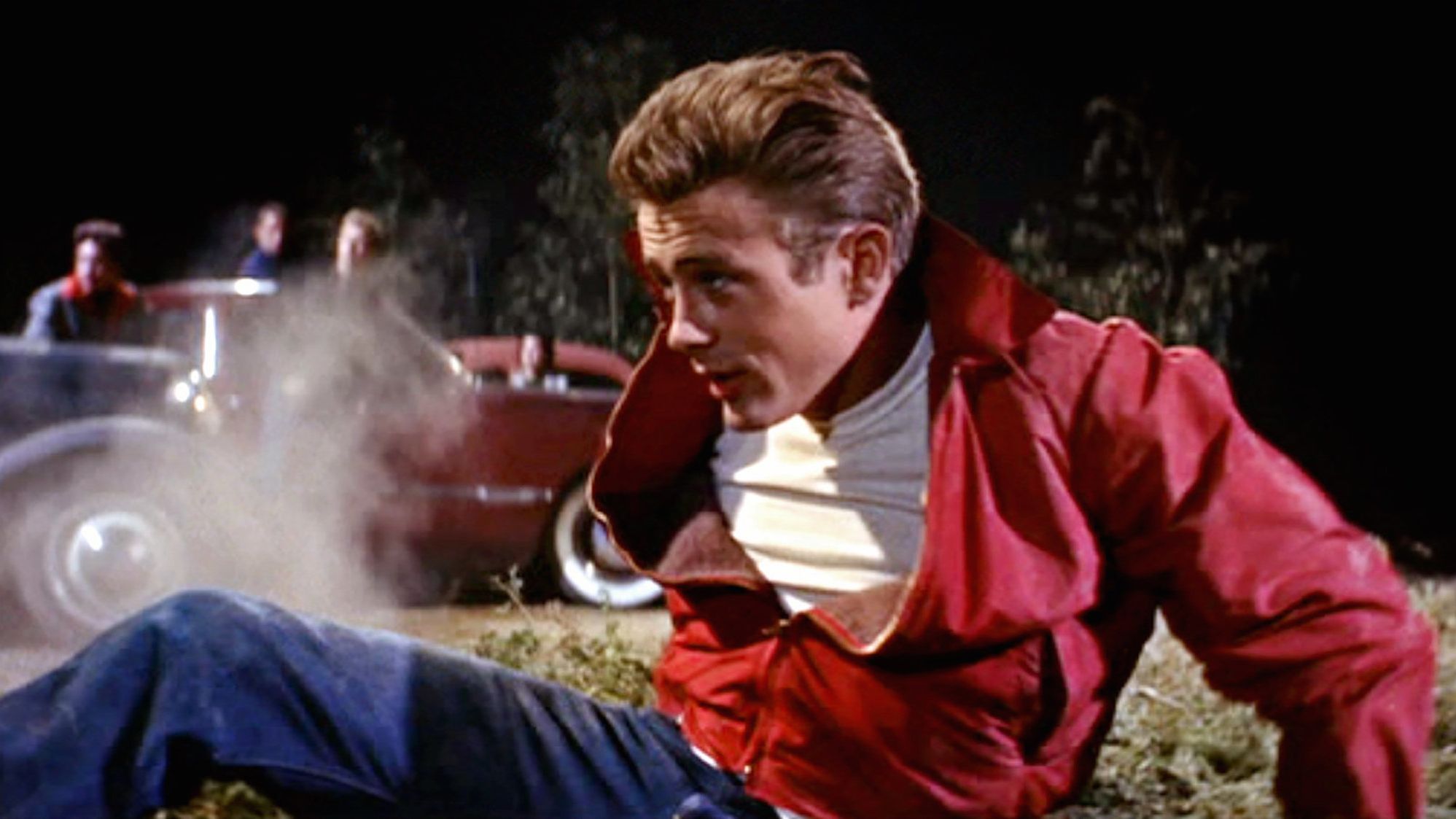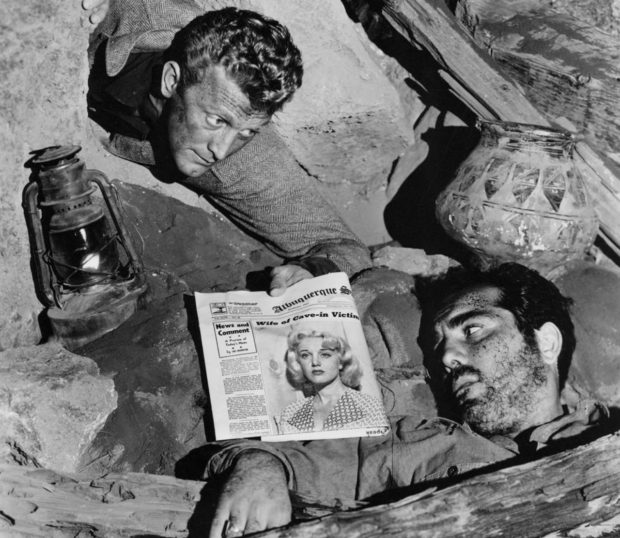The second part of this run of articles marks a change almost immediately. The allotted ten spaces I gave to the previous list has been amended immediately to stretch to 15, with an additional list of honourable mentions. So you will have truly more than you can handle when it comes to movie recommendations this week.
I must also add that I have recycled certain comments regarding films that appeared on my “Top Ten” piece that opened this blog. Pardon my laziness, but this was a herculean task.
One of the most unsettling films of all time, with one of
the truly best villains. Robert Mitchum stars as the terrifying preacher Harry
Powell, hunting down Billy Chapin and Sally Jane Bruce (in two of the best
child performances of all time) - the son and daughter of Shelly Winters - in a
haunting portrayal of a simple woman caught in a web of deceit that she can’t
untangle. Charles Laughton’s southern gothic noir packs every one of its 92
minutes with tension, beauty and fear. Lillian Gish does a tremendous job as
the fervent Rachel Cooper defending the children to the best of her ability,
with her trusty shotgun. A must watch for fans of great direction, beautiful black and white cinematography or excellent performances.
The 50s were the undoubted high point of Hitchcock’s career and so I can comment now that this is the first of many Hitchcock entries in this list. But let's not get ahead of ourselves. We begin with the James Stewart and Grace Kelly classic,
Rear Window. So effortlessly taught and so beautifully shot, that every time you sit down to watch it, the 2 hours just fly by. The elegance and brilliance of Grace Kelly is met by the talent of her performance as Lisa Carol Freemont, one of the most spectacular visions every put to screen, a marvellous addition to her brilliant acting in the film. Thelma Ritter is hilarious when needed, but holds us with tension and fear whenever the comedic relief needs to end. Raymond Burr and Wendell Corey add splendidly infuriating and terrifying supporting performances. But Hitchcock’s direction and John Michael Hayes’ thrilling script can only take us so far, for if it it was not for the immense and everlasting charm and charisma of James Stewart, the film wouldn’t hold us for too long. Through his eyes we see it all, and what terrific eyes they are.
13. Strangers on a Train (Hitchcock, 1951)
You need not wait more than a line of space before your next
Hitchcock entry, with this black and white, startling thriller, starring the
underrated Farley Granger and the marvellously devilish Robert Walker as Bruno
Antony fulfilling, if not a faithful adaptation of Patricia High smith’s
original novel,
certainly all of the
conniving and mystery of the text. Hitchcock elevates the terror and suspense
of the novel into the cinematic plain with effortless flare and even makes a
game of tennis as tensely unbearable as a climatic chase. The carousel scene
remains, for me, Hitchcock’s tour de force in the medium and his greatest set
piece of all time. The film is witty, darkly humorous and unnerving to no end.
A true classic of the medium.
12. In a Lonely Place (Ray, 1950)
One of the most underrated films of Bogart’s career, the noir genre and, frankly, of all time. The film’s tagline once read “The Bogart suspense picture with the surprise finish” and even knowing that the ending will be a surprise, one has truly no idea what that surprise will be. Even upon re-watch, knowing the terror that will come by the end of the film, we are invested all the same just as if we were watching it for the first time. The troubled romance at the heart of the film is portrayed nothing short of perfectly by Bogart and a truly astonishing Gloria Grahame, in her finest role also. A firm recommendation for anybody who hasn’t seen the film, or anybody - for that matter - who has. Watch it again. You won’t be disappointed. I never am anyway.
11. All That Heaven Allows (Sirk, 1955)
A vastly underrated Christmas movie and romance movie
nowadays. The turn for Douglas Sirk into
becoming properly recognised as a master filmmaker came far too late for my
liking and all anybody needed to do was watch this film to see what the talent
on display. “The magnificent stars of
Magnificent Obsession reunited”, with Rock Hudson (in a daringly handsome and brilliant
turn) and Jane Wyman (so painfully vulnerable, elegant and brilliant also) as
lovers caught in the trap of their time, not allowed to experience the love
that they feel so strongly. The awe-inspiring photography of the winter is
the stuff of paintings and offers a breathtaking backdrop for
one of the greatest romance films of all time. The undisputed best of Sirk's melodramas.
10. North by Northwest (Hitchcock, 1959)
Yet more Hitchcock fare, but who can complain when the fare is this excellent. The best Bond film in a way, but I’ll be less facetious and just call it the best adventure/espionage film of its day (or any day really). Cary Grant is perfect as the troubled innocent man on the run, Roger Thornhill, and Eva Marie Saint is just as perfect as the double-crossing love interest, Eve Kendall. But the true re-watchability and best work lies on the other side of the good-bad line, with James Mason and Martin Landau as two of the best villains of the decade. Mason is his usually evil self and Landau is delicately horrific as his second in command. However, the true star here is Hitchcock, offering us some of his best set-pieces of his career. One must also not neglect to mention Ernest Lehman’s stunningly funny and twisting script that pulls us all the way along our troubled journey.
9. Some Like It Hot (Wilder, 1959)
To put it simply: one of the best comedies ever made. Lemmon,
Curtis and Joe E. Brown are simply hilarious. Monroe is her brilliant self.
Wilder and Diamond give us another frankly dynamite script and Wilder directs
it with such comedic perfection that it’s truly baffling how the man achieved
such brilliance in so many genres. A film that has never aged a day and will
never fail to bring a smile or a laugh to the viewer's face, no matter their mood.
It also has the privilege of being one of my top five closing lines of all time
(“well, nobody’s perfect”), a privilege that Wilder achieves with three out of five of those places, with one of those films appearing further up this very list.
8. All About Eve (Mankiewicz, 1950)
The ruthless story of Eve Harrington will never age, cause frankly it will happen over and over again and there is no better adaptation of the story of a fading legend passing a rising star, than in All About Eve. Although it’s title begs to differ, this film is in fact all about Bette Davis, offering her greatest performance of all time. Although I disagree with the way that the Oscars landed this year, I cannot deny that Sanders, Mankiewicz, Edith Head were all worthy winners, nor that Davis, Holm, Baxter, Ritter and Krasner were all sturdily brilliant nominees. I just hold the belief that when it comes to films in that Oscars race, regarding fading stars, there is one film that pipped this at the post. You’ll find it later in this list, rather than closer to the top.
7. Rebel Without a Cause (Ray, 1955)
The second entry from Nicholas Ray on this list perpetuates
the talent of the director. I had the great chance to view this film on the big
screen in Philadelphia and what truly dazzling footage it was. I find the
tragic deaths of its three leads sometimes overshadows the talent of them; Sal
Mineo as a deeply troubled kid with nowhere to go, Natalie Wood as the girl who
just keeps falling for the wrong guys and James Dean, powerful, dazzling and
effervescent. All three are eternalised in this masterful film and will remain
that way forever. The film has become more of a document of talent lost than a
simple movie of its time. The film will live on forever because of this and multiple generations will see the vividness and lustre of the film as well as of those that we lost.
6. Vertigo (Hitchcock, 1958)
The highest ranked Hitchcock for this list is a startling
view of obsession and terror, told through the eyes of somebody that we just
can’t trust. The warmth and charm of James Stewart is gradually reduced over the course
of the film until we are left with a vision of absolute mental vulnerability
and pained manipulations. Kim Novak similarly offers a marvellous performance,
veering between multiple characters and multiple versions of such characters.
At the end of the day, Vertigo is
quite frankly one of the most disturbing and obsessive movies of all time and
it leads its viewers to become just as obsessive. A truly
unnerving and powerful film that haunts you like the ghosts of your past.
5. Ace in the Hole (Wilder, 1951)
The highest ranked Wilder is, for this list anyway, the most underrated
film in his much celebrated cannon. A satire like no other before it, the film
follows Kirk Douglas in his finest performance. Both working titles for the
film illuminate the centre of this sensational film;
“The Big Carnival” brings to light the satirical centre of the
film’s brutal nature, “
The Human Interest Story” brings that centre to the forefront even more. But “
Ace in the Hole” informs us not only of
the crux of the film and it’s duplicitous characters, but also is emblematic of
what the filmmakers have on their hands. A truly genius film, unparalleled in its brutality and its truth.
4. A Streetcar Named Desire (Kazan, 1951)
The finest adaptation of the greatest playwright of all time, Tennessee Williams. It is a great shame that censoring squandered so many of his great works when adapted to film, so that their original brilliant casts couldn’t be immortalised in their performances. Although this film does have its one moment at the very end, you can
always turn your Blu-Ray off a moment early, like I do. Vivien Leigh and Marlon
Brando offer us two of the greatest film performances of all time - no hyperbole
involved, simply two masters offering us the best of their work. Kazan
shoots the whole thing with an expertise almost unwarranted in regards to the
immense amount of talent he held within him. The film sears with sexuality and
brims with horror to make a vision that is simply impossible to turn away from.
3. Sweet Smell of Success (Mackendrick, 1957)
It's under question how much of the final script was
down to Clifford Odets and how much was down to Ernest Lehman but, whoever
wrote it, thank God that they did! The film has one of the best scripts of all
time and Tony Curtis and Burt Lancaster take great pleasure in bringing the
acid soaked words of the written page and firing them at one another with such
precision that it’s almost too much to bear. The poster read that that it was
“the motion picture that will never be forgiven – or forgotten”. I can’t vouch
for those who were so blissfully tarnished by the film that they can’t forgive
the thing, but I can agree with those many who will never forget it. Simply sensational.
2. 12 Angry Men (Lumet, 1957)
Sidney Lumet’s precision with his camera and Reginald Rose’s
precision with his words leads to viewing twelve men in a room for over an hour
and a half some of the greatest and most riveting filmmaking ever made. Cobb,
Fonda, Balsam, Marhsall, Fiedler, Binns, Klugman, Warden, Begley Sweeney,
Webber and Voskovec are all supremely excellent, I can single none
out. I can only comment that it’s the finest filmed ensemble of actors ever in
its medium. All involved have done excellent work after this - some before - but
combined and caught in this film is such a masterful fury of talent and pathos
that one can barely catch their breath. By the time we leave the room, we’re
gasping for air and hoping for any sort of result that we can sit with and go
home with. We have become a part of the jury, we have become responsible and we
feel the weight of every word spoken and every choice made. Now that’s a film, if ever I’ve known one.
1. Sunset Boulevard (Wilder, 1950)
The aforementioned loser at the 1950s
Oscars for Best Picture, following another fading star, is the immutable classic Sunset Boulevard. What further
solidifies the performance by William Holden in Network is the career
aspect that we gain from his earlier work in the 50s, an effect that I will
talk about later in this series, also by way of a Billy Wilder classic. This
Wilder film (a top five director for me) came to me by way of my other love: musical theatre. I was actually a great fan, and still am, of Andrew Lloyd
Webber’s musical adaptation of this film before I even watched the film. When
I discussed an interest in seeing the film, my mother commented that “it’s
good, but it doesn’t have the songs”. 1950's Sunset Boulevard frankly
doesn’t need them. The tragic portrait of Norma Desmond, played beautifully by
Gloria Swanson, knows no bounds when it comes to dark humour, deep sadness and
great pain. The deviously devilish script from Wilder and Charles Brackett
leads us down a path that we never thought we’d go down, despite them showing
us the final destination in the first frame. "Ingenious" would be one
word to describe the film. "Genius" would be another.
-
As aforementioned, here are a plethora of
honourable mentions: Roman Holiday,
Picnic, Marty, Kiss Me Deadly, Giant, Written on the Wind, High Society,
Witness for the Prosecution, Pillow Talk, Suddenly Last Summer, Shane, On the Waterfront, Carousel, A Place in the Sun.
And
so concludes
the second part of this run of articles. As we continue to move on through the
multiple glorious decades of motion picture history, I sure hope you will be
with us every step of the way.
-Thomas Carruthers

















0 Comments